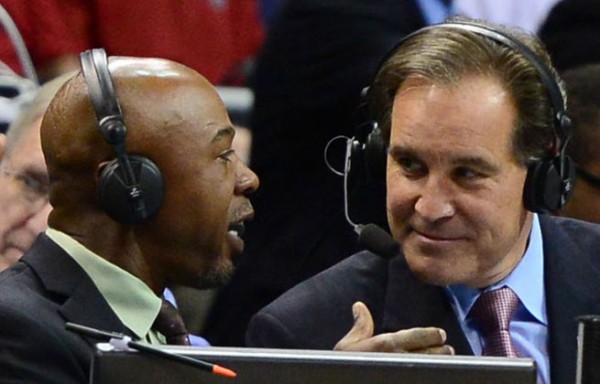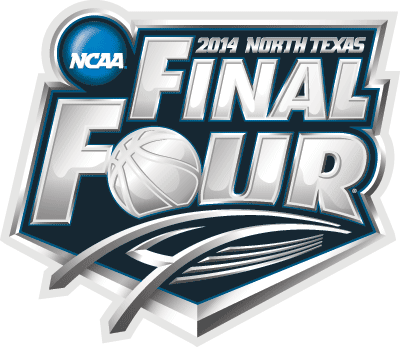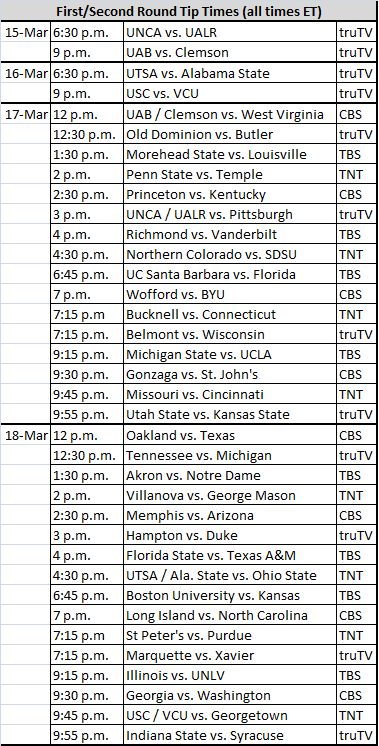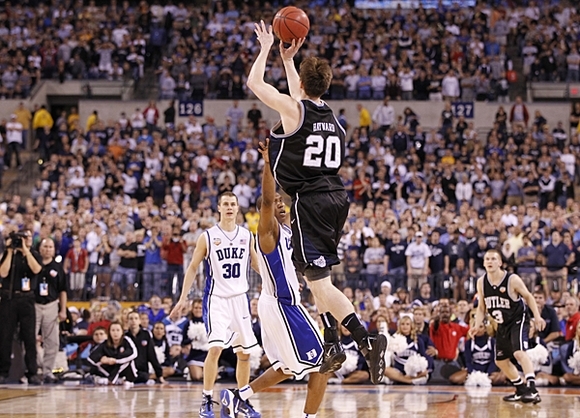The RTC Interview Series: One on One With Grant Hill
Posted by Chris Stone on April 4th, 2016
Tonight’s National Championship game between North Carolina and Villanova will be televised on TBS, the first time in the event’s 78-year existence that the it will air on cable. Ahead of the finale to March Madness, Rush the Court got a chance to speak with Turner Sports analyst Grant Hill, one of the game’s announcing crew along with Jim Nantz, Bill Raftery and Tracy Wolfson. Hill is a two-time NCAA champion, a three-time Final Four participant and an 18-year NBA veteran. We spoke with the basketball icon about what it means to call this event, his experience playing in the Final Four, and the matchup between the Tar Heels and the Wildcats. This interview has been edited for clarity.
Rush the Court: You played in three title games while you were at Duke (1991, 1992, 1994) and now you’re calling the first title game to ever air on TBS. I’m curious what that’s like for you and in a broader sense what it’s like for the network.
Grant Hill: For me, it’s great. I’ve really loved everything about the tournament from the time I was nine years old. I still recall the first Final Four I ever watched, which really sparked a love of the game of basketball and a desire to want to play it back in 1982 when North Carolina beat Georgetown. Then to be fortunate enough play in three Final Fours, three championships, and then now to come full circle and be able to broadcast it, it’s just a tremendous honor and privilege. For us, this is history in the making. The first time a cable network broadcast the NCAA Tournament final. I’ve been exposed to it for the last three years in a couple of different roles, but it’s been great and I’ve enjoyed the combination of both networks’ resources in putting these games on, culminating with this weekend’s Final Four on TBS. It’s exciting and I’m really looking forward to tomorrow night.
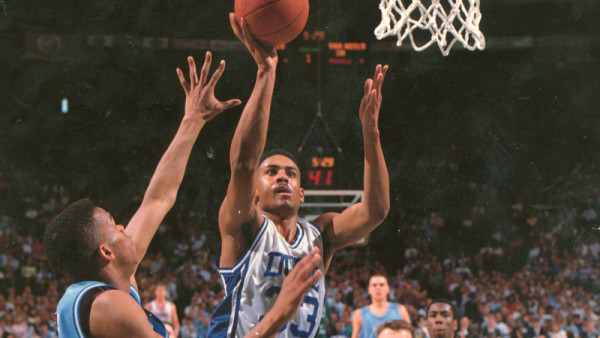
Grant Hill played in three Final Fours while at Duke. (Credit: Duke Sports Information)
RTC: We have a Final Four with a lot of upperclassmen playing in it. How did your experience at the Final Four change from when you were a freshman to when you were a senior? What was that transition like?
Hill: I think I played important roles in both Final Fours, from freshman year to senior year. My freshman year, I was a young pup. I was a neophyte. It was my first experience and I really leaned on the leadership of our coach, but also our upperclassmen. They had a responsibility as leaders to lead, for lack of a better word. Then, I had that same role my senior year. Part of that is it’s not just what you do in the game, but it’s what you do prior to the game, preparation during the weekend, during the Final Four. It’s what you do throughout the season. It’s what you do in the offseason prior to that year. Everything is about living up to the championship standard and that responsibility is really on your shoulders as captains, as seniors, as guys who’ve been through it, good and bad. It’s upon you to help create an environment that is conducive to winning. It was something that we lived with every day and you did everything you could. From the time that we assembled as a team in the summer prior to school starting, everything as a leader is about getting yourself ready for this stage and so understanding that, you only get that from experience. You only get that from success and failures and it’s hard as a freshman to be able to know what that’s about. As much as I watched it, as much as I was able to go to a couple Final Fours as a fan in the 80s, not until you’re in it and not until you get a taste of it do you really understand what exactly it’s all about. So, experience, you can’t teach that and we’re seeing that here. We’ve seen it throughout the season. That’s been the theme of college basketball. You look at both teams. They’re senior-led.






























